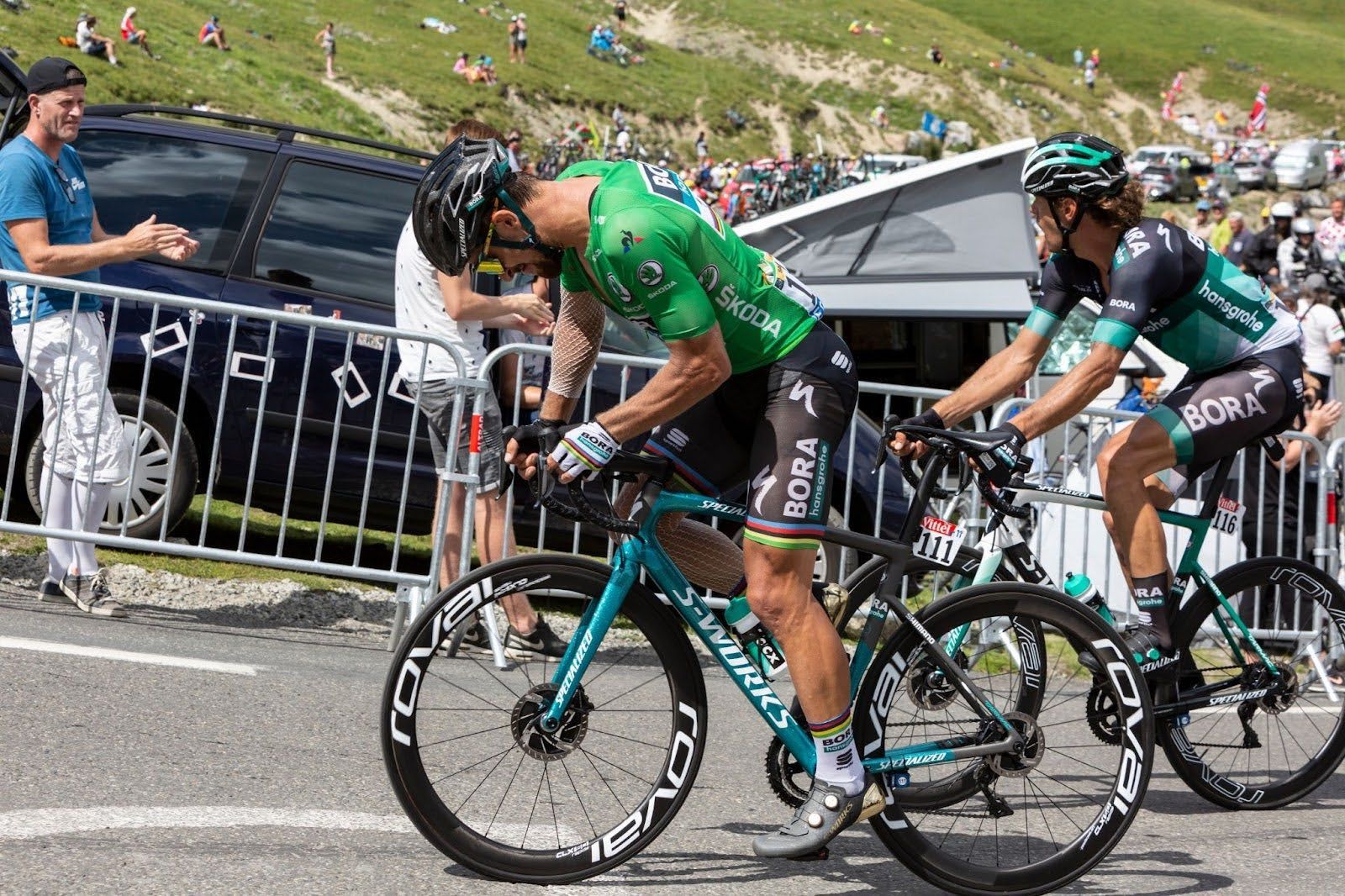Riding in a race, or heading out for a solo ride, you’re never without your biggest competition: You.
Sure, cycling can be a fun social activity, and group rides are a great way to train. But when it comes down to it, when you’re climbing that hill, struggling to survive the last 10 miles of a century ride, or sprinting to the finish in a race, it’s you vs. you.
When the pressure’s on and your legs are getting weak with fatigue, what does it take to ignore those voices that want you to give up? Mental toughness.
Is mental toughness – that iron will to keep going when your body, or more likely those pesky voices in your head, tell you to ease up – something you’re simply born with?
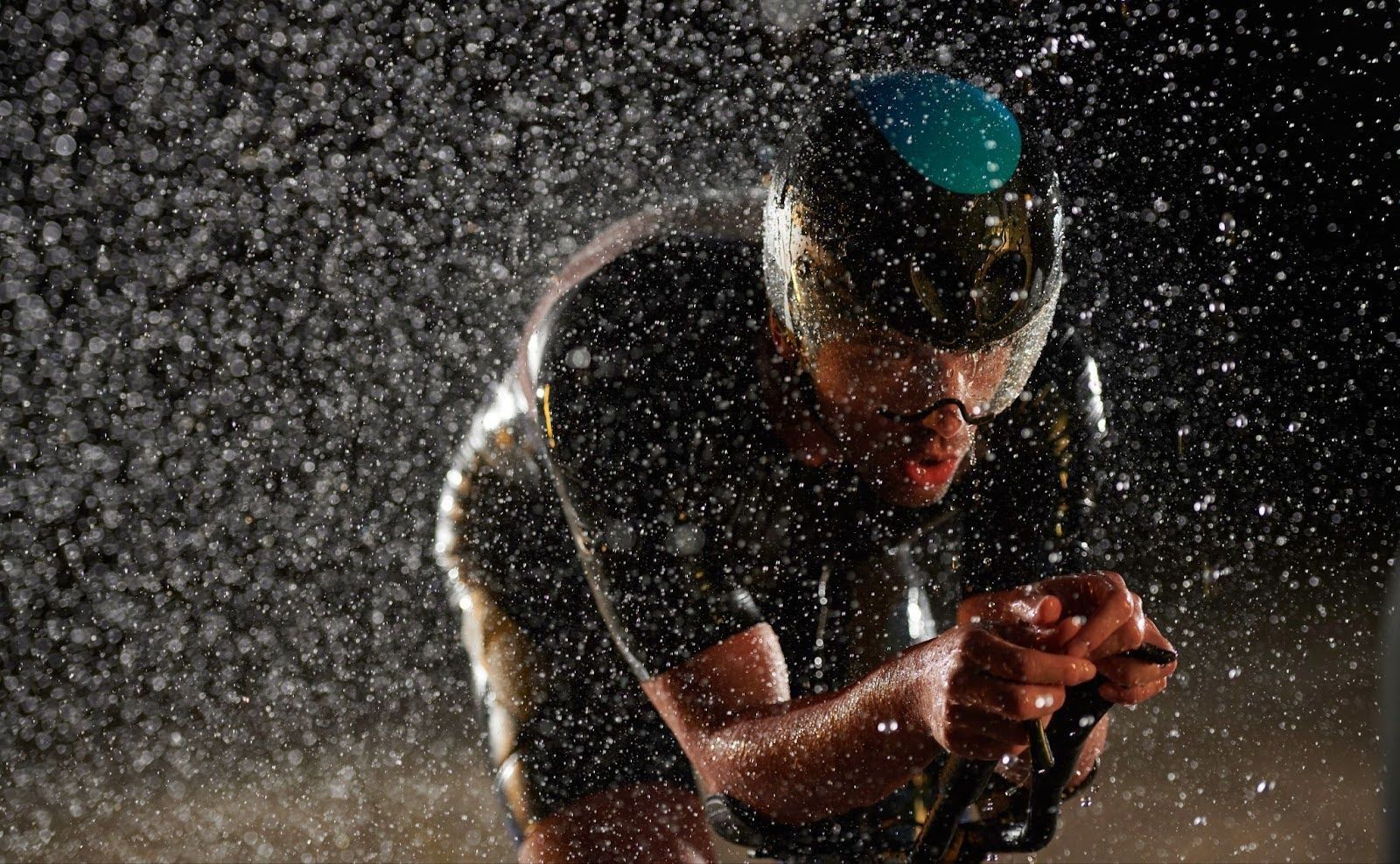
Demystifying mental toughness: Insights from mental performance coach Eli Straw
Eli Straw, a mental performance coach based in North Carolina in the U.S., says no. “One of the most detrimental ideas to anyone wanting to gain a stronger mind is that we are born with a certain level of mental strength,”Straw writes.“Thinking in this way … limits your potential to build mental toughness.
“The truth is, mental toughness for athletes, as with physical toughness, must be cultivated. Through repeated efforts, the skill can be built.”
The question, of course, is how?
Over the past three decades or so, this has been one of the challenges sports psychologists have looked at as they studied what makes top-level athletes tick.
The evolution of mental coaching in elite sports: Karin Vravková's perspective
It’s become commonplace over the past three decades or so for world-class athletes and teams to have a sports psychologist – or mental coach – on staff alongside, say, a nutritionist, strength trainer and physiotherapist, says Karin Vravková, who is a co-founder of Headformers, and has extensive experience working with athletes in individual sports, hockey, and handball.
“The work of mental coaches is very young compared to other areas of psychology,” she says. “But these days, mental training is a common part of athletes' preparation and every club has its own group of sports psychologists. This trend has been going on since about the 1990s and is gradually getting better.”
Vravková, who holds a Master’s degree in psychology from Constantine the Philosopher University in Nitra, Slovakia, points to legendary Olympic swimmer Michael Phelps as an example of a world-class athlete who kicked his career into a higher gear with the help of a sports psychologist.
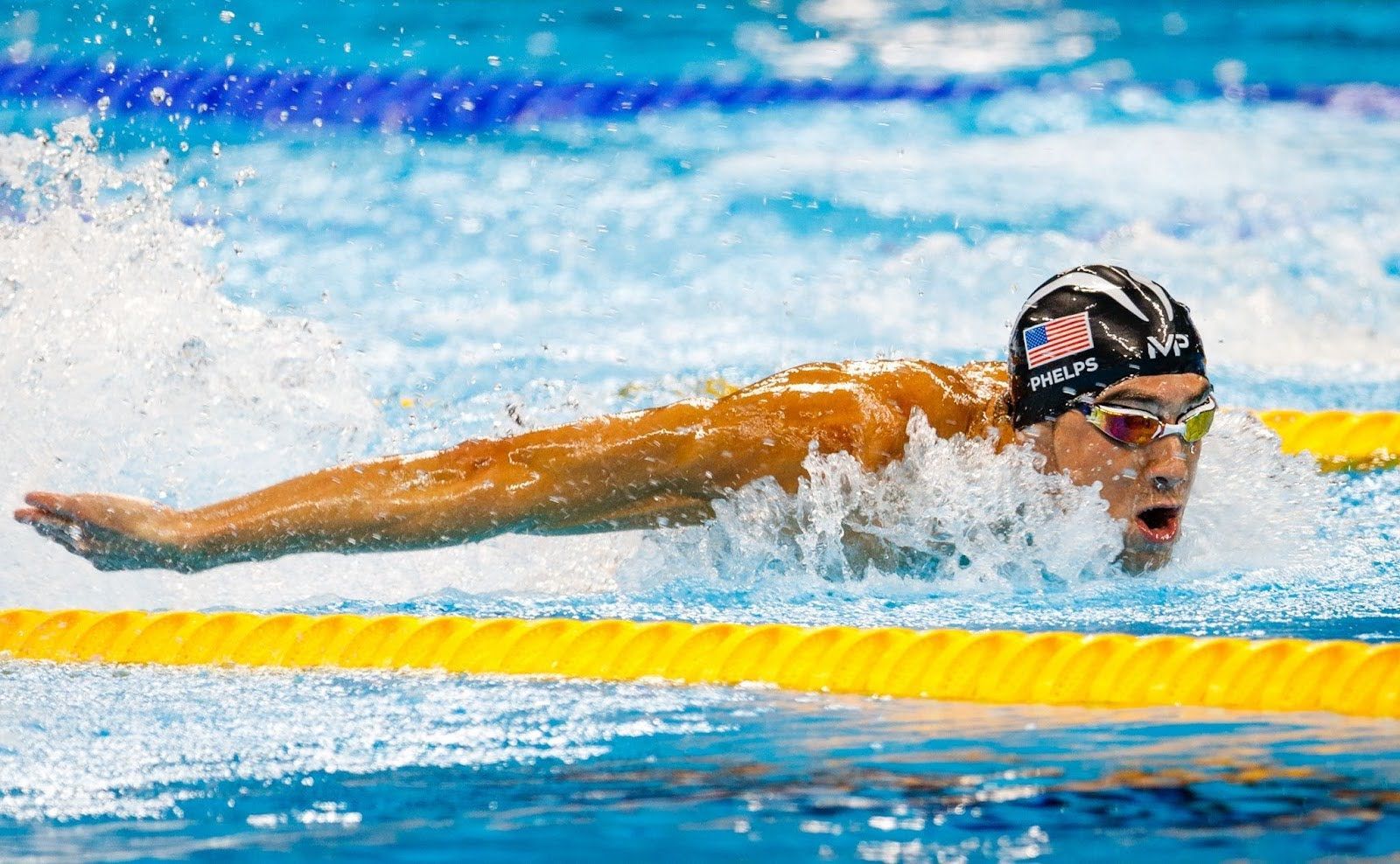
“Phelps worked with a mental coach to prepare for the challenges of high-level competition. He learned the importance of positive self-talk, especially given the solitary nature of swimming where athletes spend much of their time alone with their thoughts,” she says. “This was integral in preparing Phelps for the Olympics and maintaining his focus and motivation.”
There was a time when mental coaches or sports psychologists were only called into action to address athletes’ specific problems, according to Vravková. Now, though, high-level athletes and teams utilize their services in order to gain a competitive advantage.
“For a long time, the opinion was that we only need a mental coach or a sports psychologist when something is wrong with us, “ she said. “In recent years … most of the athletes are seeking a mental coach to help them achieve their potential.”
Not every athlete can employ the services of a trained mental coach, of course. But there are ways we can strengthen this part of our “skill set” the same way we can improve our physical strength, flexibility and endurance. Of course, as with building a stronger body, building a stronger mind takes time. It’s a process.
With that in mind, here are nine tips to help you build a mentally tough mindset.
Building a mentally tough mindset: 9 practical tips
Tip 1: Focus on continuous improvement, not just winning
Whether in a competition or just training (in other words in a competition with yourself), always remind yourself that constant improvement is the goal.
The highly successful people Angela Duckworth wrote about in her New York Times bestseller “Grit: The Power of Passion and Perseverance” – the “paragons of grit,” as she dubbed them – resist complacency and constantly strive to improve, no matter what it takes. “Each was chasing something of unparalleled interest and importance, and it was the chase – as much as the capture – that was gratifying.”
The question should never be “am I as strong as I could possibly be?” Rather, keep asking yourself, “Am I stronger than I used to be?”
Tip 2: Harness positive self-talk to strengthen mental resilience
Selene Yeager, a bestselling health and fitness writer and longtime cycling coach, advocates using self-talk to “be your own cheerleader.” We all talk to ourselves during gruelling training or during the heat of competition. It’s key to keep the dialogue positive.
“As we push through the pain during a race, it's natural to talk to ourselves,” she writes at Bicycling.com. “It's also natural to have an unpleasant conversation. Studies show that both negative and positive self-talk influence performance – you can guess which works best.”
Speaking with me, Yeager added, “I always tell myself, ‘No matter how bad or good you feel, it won’t last.’ When you’re racing you’re going to have moments where you feel bionic and moments where you’re in the hurt locker. Neither last forever, so don’t inadvertently bury yourself by burning matches when you feel great, and don’t pull the plug when you’re not.”
Tip 3: Visualize success: Beginning with the end goal in mind
Naturally, mental toughness is a factor at the end of a race or training session, not the beginning. It’s that last 5 or 10 percent where we’re calling on all of our powers to keep going.
With that in mind, Dr. Chris Napolitano, an associate professor of educational psychology at the University of Illinois at Urbana-Champaign in the U.S., recommends reviewing your planned ride ahead of time and visualizing where the effort needed to keep going is going to be most taxing.
“If you are surprised to be gritting out the last metres of a training session, you've made that session as difficult as it could be. You still probably can finish it, but you've made it very difficult,” says Napolitano, who has done research in self-regulation, self-control and socio-emotional skills. “That exertion would be easier if, going into the workout, you glanced at the route and told yourself, ‘Okay, so miles 10-12 are really going to be difficult. But I know that going in, and that brutal stretch is going to make me stronger.’"
Tip 4: Embrace and address weaknesses for stronger mental fortitude
Acknowledging and admitting your weaknesses is critical if your goal is to improve. This approach is common sense when you think about the physical aspects of cycling. If you’re not a proficient climber, that weakness is quite obvious; and the strategy for correcting that deficiency is simple: spend more time training on hills. Mental toughness, though, can be a tougher nut to crack.
“You have to first admit to areas of weakness,” Straw writes. “Hiding our weaknesses is in fact weak. Once you adopt the idea that mental toughness for athletes is a characteristic that needs to be built, revealing areas of weakness becomes necessary.
“By admitting to them and shedding light on areas that need improvement, you are not showing any weakness, rather you are building strength.”
Tip 5: A strong body builds a strong mind
You can’t neglect the other aspects of your training. The same way poor nutrition or lack of sleep will negatively affect your muscles, they’ll also weaken your mental resolve when you need it most.
NUTRITION: Protein, carbohydrates and fats are the big three when it comes to fuel for athletes. The American Sports & Fitness Association points out that endurance athletes require “a higher protein intake for immune system health, tissue repair, and general recovery.” Carbohydrates, meanwhile, are crucial during long training sessions “as they prevent depletion and the ensuing dizziness due to severe muscle exhaustion.” And it may seem counterintuitive after years of being told the less fat the better, but don’t neglect your intake of healthy fats. The fact is, fats are “crucial for sustaining workouts that emphasize endurance over speed.”
“Endurance athletes should get at least 20% of their calories from unsaturated fats to maintain excellent health, as reducing this will negatively impact calorie intake and vitamin absorption,” according to the AFSA.
SLEEP: SleepFoundation.org writes that “elite athletes are encouraged to get at least nine hours of sleep nightly and to treat sleep with as much importance as athletic training and diet.”
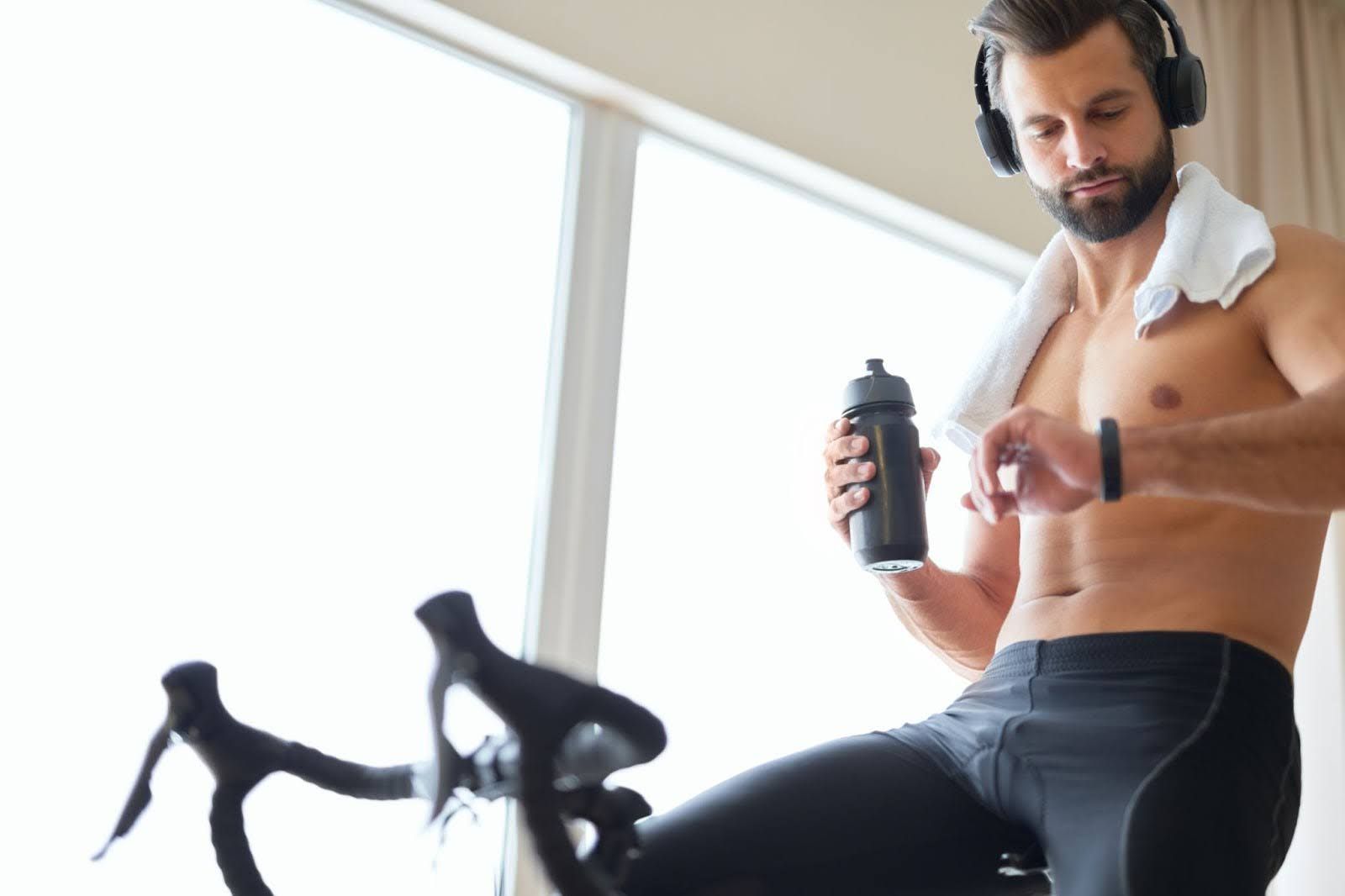
HYDRATION: It perhaps goes without saying that during intense physical activity, staying hydrated is essential. To help maintain your mental edge, keep a water bottle or two handy, and drink before you feel thirsty.
Tip 6: Master the art of focus in training and competition
Honing your ability to focus exclusively on the task at hand, whether in training or during a race, is an effective way to keep self-doubt at bay. Simply devoting all your energy and thoughts to the simple routine of turning those pedals can hit the mute button on those inner voices trying to convince you to pull back.
Vravková recommends constantly reminding yourself of why you’re doing what you’re doing.
“During the race or game or competition, you don't have time to think about anything else but to keep going. Always try to remind yourself why you are doing it. ‘Why did you enter this race? Why are you doing this sport?’ As long as you know the answer to the ‘why’ question, however challenging, you can handle the ‘how’ part. Just remember that one thing you told yourself before the race, and keep going.”
Tip 7: Get an accountability partner
Group rides on ROUVY can function as a great accountability partner. As herd animals, we humans are programmed to fit into groups. Take advantage of this hard wiring by riding with folks who are like minded.

Tapping into the power of the basic human drive to fit in is something sociologist Dan Chambliss spoke about in “Grit: The Power of Passion and Perseverance.” The short version: If “you’re around a lot of people who are gritty, you’re going to act grittier,” Chambliss tells Duckworth.
Tip 8: Utilize positive distractions to maintain training motivation
Even on a perfect summer day, training on the same route over and over can get boring. And it’s when you begin getting bored that your mind is most likely to let in negative thoughts. The hundreds of routes available on ROUVY mean you may never have to ride the same road twice.
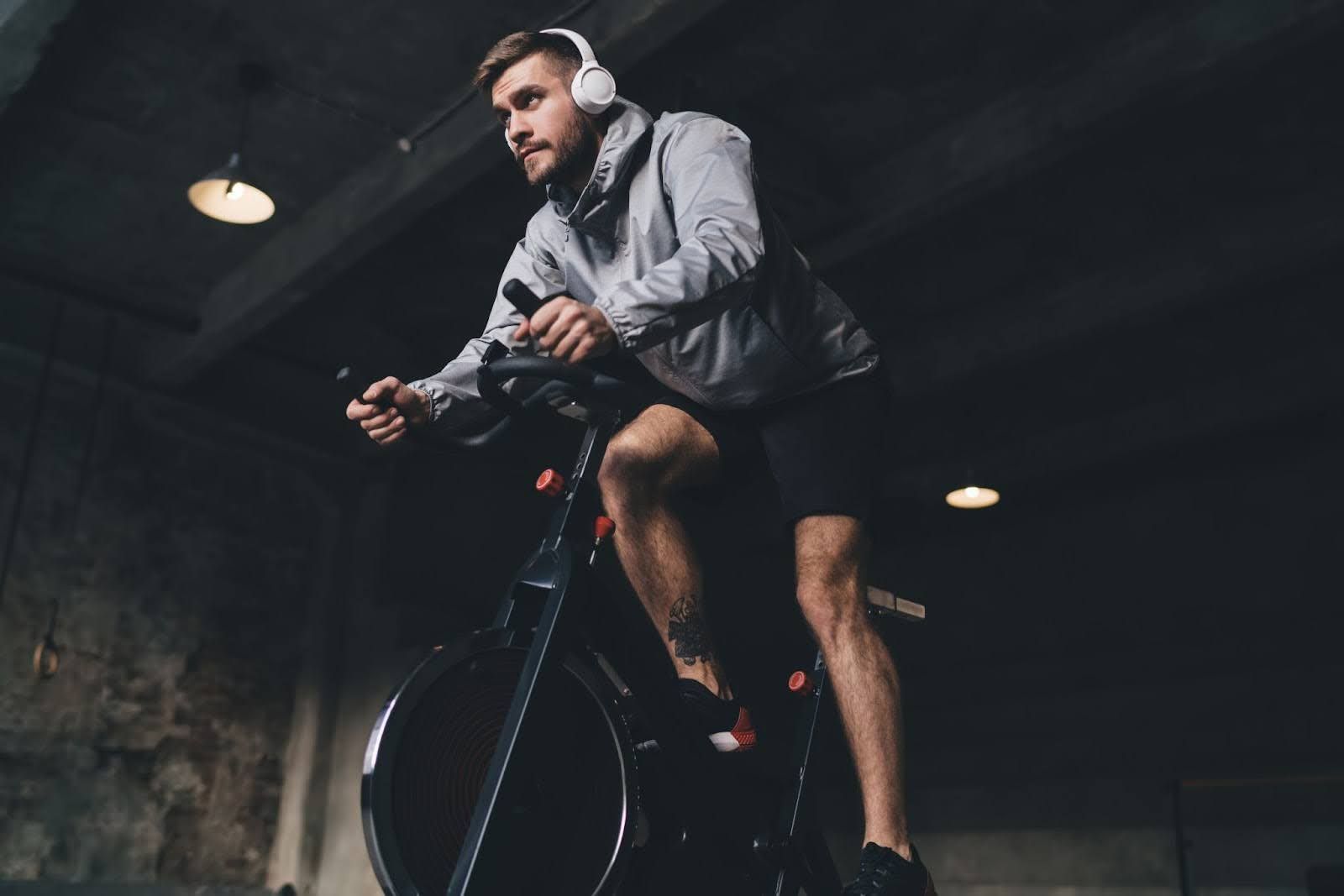
Another strategy to avoid boredom is to crank those tunes. For many passionate indoor cyclists, a sound system is an essential part of their cycling “pain cave.” Hip hop? Led Zeppelin? Wagner? Whatever your jam, a high-volume dose of music that speaks to you can keep the boredom at bay and keep you focused.
Tip 9: Directly confront weaknesses to build confidence and skill
If climbing is your Achilles heel, experience on hilly routes you’re unfamiliar with will build your confidence and help you ignore that negative voice in your head. Commit to taking on hilly rides such as Passo Valparola in Italy, Alpe d'Huez in France, or Mount Evans in Colorado.
If building strength and endurance is your goal, set aside time to tackle longer rides like Colle del Nivolet in Italy (46.7 kilometres), Col de la Croix in Switzerland (56.84 kilometres) or St. George in Utah (a serious bruiser at 180 kilometres!).
Flatter rides like the Colorado River in Utah, Lake Pukaki in New Zealand, and Ha Long Bay in Vietnam are excellent options on lighter training days when you want to keep going but aren’t necessarily looking to maximize the burn.
Overcoming mental barriers: Concluding thoughts on mental toughness in athletics
We’ve all heard that voice; the one that tells us we’re too tired to go on, that this hill’s too steep, that we should have trained harder last month. “You’ve gone far enough today,” it says. “Why not call it a day and relax? Have a beer!” Putting these tips into practice will help you develop the mental toughness necessary to tune out that negative voice, stay focused on meeting your goals, and keep going!
